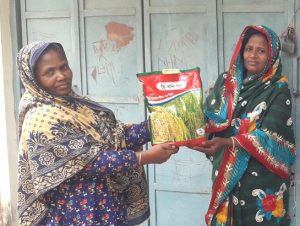A new study, published in the journal Nature Communications, takes a food systems approach that goes beyond a focus on production, yields and environmental impacts per unit output of specific commodities. It measures the impacts of a conversion to organic agriculture on a range of environmental and production indicators, and complements this scenario with two additional changes to the food system, namely (a) reductions of livestock feed from arable land (i.e. food-competing feed) with corresponding reductions in animal numbers and products supply (and thus human consumption) and in related natural resource use and environmental impacts; and (b) reductions of food wastage, with correspondingly reduced production levels and impacts. The key aim was to find out whether producing a certain total amount of food, in terms of protein and calories, with organic agriculture would lead to higher, or lower, impacts than producing the same amount of food with conventional agriculture.The results show that adoption of organic agriculture by itself increases land demand with respect to conventional production, but it has advantages in terms of other indicators, such as reduced nitrogen surplus, and pesticide use. However, when combined with the production of adequately high proportions of (nitrogen-fixing) legumes, and with significant reductions of food-competing feed use, livestock product quantities and food wastage, organic agriculture can feed more than 9 billion people in 2050, sustainably, and without vastly increasing the current land acreage under agriculture. Specifically, this translates to cutting food waste by half and eliminating competing feed sources for livestock altogether. Increasing organic yields and production, reducing food wastage, and reducing animal numbers and animal product consumption need not be implemented singly at maximal coverage. All could be implemented at partial coverage only and in combination, to achieve the improvements needed to increase sustainability of the global food system.
Since cutting down on meat drastically may be challenging for some, lead author Adrian Muller suggests the option where organic crops make up about 50% of crops, food waste is cut by half, and crops grown for livestock are cut by half (allowing for more acreage to grow human food); and putting an extra “nitrogen tax” on producers so that the environmental cost of excess fertilizer becomes an economic one.
Organic production can also reduce greenhouse gas emissions. The role of land management in preventing dangerous levels of climate change has often been overlooked. A separate study, published in the Nature journal Scientific Reports, shows that there is great potential for the sequestration of carbon dioxide through changing the way soils are protected, through better farming methods that can also help to preserve declining soil fertility.
https://www.nature.com/articles/s41467-017-01410-w via – Third World Network




